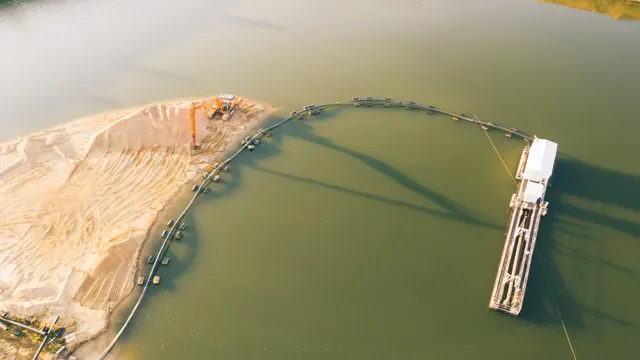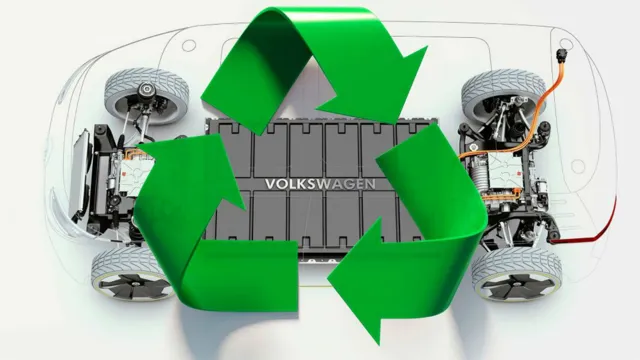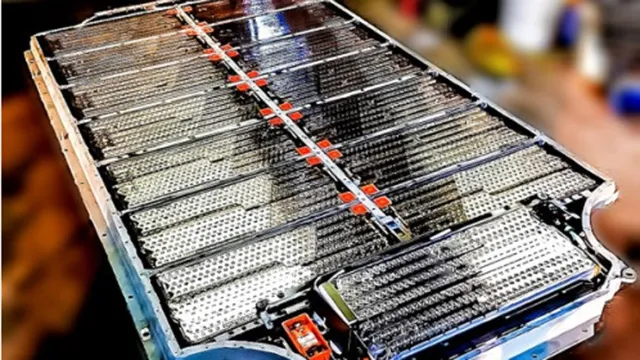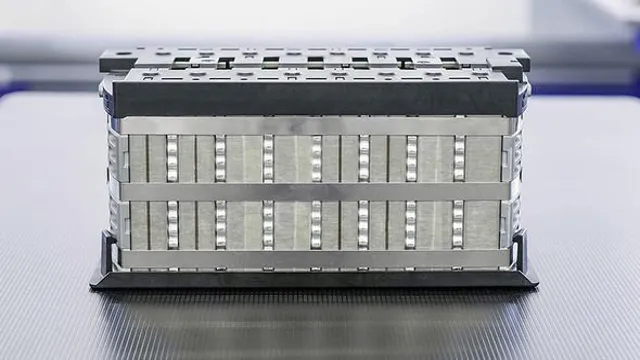Exploring the Deep: How Deep Sea Mining is Revolutionizing Electric Car Batteries
Electric cars are on the rise, and so is the demand for the batteries that power them. With a growing concern for the environmental impact of traditional fuel sources, electric cars are becoming an attractive option for individuals and businesses alike. However, the production of electric car batteries relies heavily on the extraction of rare metals, which are often found in the depths of the ocean.
This has led to a new kind of mining activity: deep sea mining. But what does this mean for our planet, and is the environmental cost worth the benefits of electric cars? Let’s dive deep into the world of electric car batteries and deep sea mining to find out.
Current State of Electric Car Batteries
Electric car batteries have rapidly evolved in recent years, but with the growth of electric vehicles comes increased demand for the minerals needed to produce their batteries. Deep-sea mining has become an increasingly popular option for sourcing these minerals since they are abundant in the ocean floor. However, this process has sparked concerns about the potential ecological impact on the ocean’s fragile ecosystem.
Additionally, there are worries about the ethical implications of sourcing minerals through child labor and intense working conditions. As manufacturers continue to push for increasing battery efficiency, it is essential to consider the impact that these batteries’ production has on the environment and society. Finding sustainable solutions for sourcing these minerals is crucial for ensuring that the electric car industry can continue to grow while protecting the planet from further damage.
Demand for More Efficient Battery Technologies
The demand for more efficient battery technologies has been on the rise as the world shifts towards cleaner energy. Although electric car batteries have come a long way, they still have their downsides. The current state of electric car batteries is that they are limited by their range, charging time, and cost.
Electric cars can only travel a certain distance before needing to be recharged, typically around 200 to 300 miles. Charging times can range from several hours to more than a day depending on the type of charger being used. Additionally, electric car batteries are expensive, making the cars themselves more expensive than their gasoline counterparts.
With these limitations, it’s clear that there is a need for more efficient battery technologies that can solve these challenges. One promising solution is solid-state batteries, which use a solid electrolyte instead of a liquid one, making them safer, more stable, and more energy-dense. Solid-state batteries can also be recharged much faster than liquid-based batteries, making them a potential game-changer for electric cars.
Another potential solution is lithium-sulfur batteries, which are lighter and more energy-dense than lithium-ion batteries. These batteries can store more energy, resulting in longer ranges for electric cars. Overall, the current state of electric car batteries has room for improvement, and the demand for more efficient battery technologies continues to grow.
With advancements being made in solid-state and lithium-sulfur batteries, the future of electric cars looks brighter than ever before. As these technologies become more widely available, electric cars may become a more viable option for drivers worldwide, paving the way for a cleaner, more sustainable future.
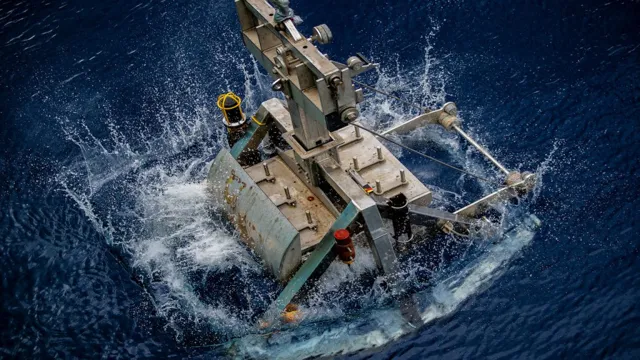
Impact of the Deep Sea on Electric Car Battery Production
The electric car market is booming, and with it, the demand for reliable and efficient electric car batteries. Currently, most electric car batteries rely on the use of cobalt, a rare and expensive metal that is primarily sourced from the deep sea. The mining of cobalt from the deep sea has raised concerns about the potential ecological impact of this practice, as it can lead to disruptive and destructive effects on deep-sea ecosystems.
However, the development of alternative battery materials and sourcing methods is underway, including the use of nickel and lithium-ion batteries. As we move towards a more sustainable and environmentally conscious future, it is crucial that the impact of battery production on the deep sea is carefully considered. By exploring and implementing new battery technologies, we can work towards a more sustainable and ecologically responsible future for electric car production.
Deep Sea Mining Risks and Benefits
Mining for minerals used in electric car batteries is prompting interest in deep sea mining. While this approach can yield many benefits, there are also significant risks to consider. Deep sea mining can help boost economies, support green energy needs, and solve resource scarcity issues.
However, extracting materials from the ocean floor can cause irreparable damage to biodiversity and habitats, leading to the loss of countless species. Other risks include the potential for toxic sediment and the release of harmful chemicals, which can have long-lasting impacts on marine life and even human health. As we continue to develop sustainable solutions for a cleaner future, it is crucial that we consider the consequences of deep sea mining and work to minimize its negative impacts.
Environmental Concerns and Potential Consequences
Deep sea mining may offer some economic benefits, but it also comes with significant environmental concerns and potential consequences. One of the major risks is the destruction of delicate deep-sea ecosystems, which are home to unique and fragile species that have yet to be fully studied or understood. Mining operations may also release toxic chemicals into the water, contaminating the surrounding environment and disrupting marine life.
Additionally, deep sea mining could potentially exacerbate climate change by releasing carbon that is stored in the seabed. Despite these concerns, proponents argue that deep sea mining could offer a sustainable way to meet growing demands for metals and minerals, reducing the need for environmentally damaging land-based mining. However, before moving forward with deep sea mining operations, thorough research and environmental impact assessments must be conducted to ensure that the benefits outweigh the costs and potential risks.
Economic Advantages and Future Predictions
Deep sea mining is an industry that involves the extraction of valuable minerals and resources from the ocean floor. There are many potential economic advantages to deep sea mining, such as increased job opportunities, reduced dependence on foreign resources, and economic growth. However, deep sea mining also comes with significant risks, such as environmental damage and the displacement of marine life.
It is important to carefully consider these risks and weigh them against the potential benefits before engaging in deep sea mining. Despite these risks, many experts predict that deep sea mining will become more prevalent in the coming years. As land-based resources become scarcer and more expensive to access, companies are turning to the ocean floor as a source of valuable minerals and resources.
Additionally, new technologies are making it easier and more cost-effective to extract minerals from the deep sea. Overall, while there are potential economic benefits to deep sea mining, it is important to approach this industry with caution and carefully consider the potential risks. By doing so, we can ensure that we are not only benefiting economically but also preserving our planet’s precious resources and delicate ecosystems for generations to come.
Technological Developments and Innovations in Deep Sea Mining
Deep sea mining is a relatively new practice that involves extracting valuable minerals and resources from the ocean floor. While advancements in technology have enabled us to explore the depths of the sea and access previously untapped reserves, there are also potential risks that cannot be ignored. For one, deep sea mining can cause damage to marine ecosystems and endanger the lives of the creatures that inhabit them.
On the other hand, there are also several benefits to deep sea mining, including the potential to find new sources of rare earth metals that are essential in the production of modern electronics. It’s important to strike a balance between preserving the fragile underwater environment and making use of its valuable resources. As we move forward, it’s crucial that we carefully weigh the risks and benefits of deep sea mining and continue to develop innovative technologies that can minimize any negative impacts.
Sustainable Solutions for Electric Car Batteries
As the world transitions towards renewable energy sources, electric cars are becoming increasingly popular. However, the production of electric car batteries raises concerns about the environmental impact of deep sea mining. The process of extracting minerals such as cobalt, nickel, and manganese results in significant harm to fragile marine ecosystems.
Additionally, the carbon footprint of mining and processing these metals is substantial. To address these issues, sustainable solutions such as recycling and second-life applications have emerged. Recycling can recover metals and reduce the need for mining, while second-life applications extend the life of batteries by utilizing them for stationary energy storage.
As the demand for electric cars continues to rise, it is vital to prioritize sustainable solutions for their batteries. By doing so, we can minimize the carbon footprint and environmental impact of electric car production.
Exploring Alternative Battery Materials and Technologies
As the world shifts towards a sustainable future, electric cars are becoming increasingly popular due to their environmentally friendly operation. However, conventional Lithium-ion batteries used in these cars pose a significant disposal problem due to their toxic components. As a result, researchers are exploring alternative materials and technologies that can make these batteries more sustainable.
One such innovative solution is the use of sodium-based batteries, which are similar to Lithium-ion batteries but use sodium ions instead of lithium. These batteries are cheaper, eco-friendlier, and can store more energy than Lithium-ion batteries, making them a viable alternative. Additionally, solid-state batteries that use a solid electrolyte instead of a liquid one are gaining popularity for their safety and energy storage capabilities.
The use of such sustainable and efficient battery technologies can revolutionize the electric car industry and help reduce carbon emissions, making our world a better place to live in.
Reducing the Need for Deep Sea Mining through Battery Efficient Cars
Electric Car Batteries As the demand for electric cars rises, so does the need for lithium-ion batteries. However, the mining of the metals required for these batteries, including cobalt, lithium, and nickel, often takes place in environmentally sensitive areas such as the deep sea. Fortunately, there are ways to offset the need for deep-sea mining, through sustainable solutions for electric car batteries.
One of the most significant ways to reduce the need for deep-sea mining is to promote energy-efficient vehicles. Electric cars that consume less energy would require smaller battery packs, which reduce the demand for the metals used in the battery manufacturing process. For example, Tesla recently announced that it would begin using iron-based lithium-ion batteries in its cars, reducing the need for expensive metals such as cobalt.
Another way to reduce the need for deep-sea mining is through recycling used batteries. By reusing the metals contained in these batteries, automakers can reduce their reliance on new materials and mining. Companies such as Tesla and Nissan are already working on recycling batteries from their electric cars, with plans to expand their efforts in the future.
Lastly, using alternative materials in electric car batteries can reduce the need for deep-sea mining. For example, researchers are exploring the use of seawater for lithium extraction, eliminating the need for traditional mining altogether. By incorporating alternative and sustainable solutions, automakers can reduce their environmental impact while satisfying the growing demand for electric cars.
In conclusion, reducing the need for deep-sea mining can be achieved by promoting energy-efficient vehicles, recycling used batteries, and using alternative materials. The transition to electric cars requires a responsible approach to the sourcing and disposal of materials, and automakers must continue to explore innovative solutions to reduce their environmental impact. Through conscious efforts, we can create a sustainable future for both the electric car industry and the planet.
Conclusion: Balancing Sustainability and Progress
In conclusion, the race to develop electric car batteries has opened up a new dilemma – the need for deep sea mining. While the technology has a lot of potential for a cleaner and greener future, it also poses environmental concerns. It’s like choosing between two evils – reducing carbon emissions but damaging our oceans.
However, as society continues to innovate and progress, we must ensure that we prioritize sustainability and ethical practices. Let’s strive for a future where we can have both clean energy and a healthy planet, without sacrificing one for the other.”
FAQs
How do deep sea mining activities harm marine life?
Deep sea mining activities involve the extraction of minerals from the seabed, which can cause damage to the marine ecosystem. The use of heavy machinery and drilling equipment can stir up sediment and disrupt the habitat of marine organisms, endangering species and compromising the food chain.
Are electric car batteries environmentally friendly?
Electric car batteries are more environmentally friendly than conventional car batteries, as they produce lower carbon emissions and reduce air pollution. However, the production process of electric car batteries involves the extraction and processing of rare earth metals, which can have negative impacts on the environment and local communities.
What are the advantages of using electric car batteries?
Electric car batteries offer several advantages over conventional car batteries, such as lower operating costs, improved energy efficiency, and reduced carbon emissions. They are also quieter and require less maintenance, making them a more sustainable and cost-effective option for transportation.
Can deep sea mining activities be regulated to minimize environmental impacts?
Yes, deep sea mining activities can be regulated to minimize environmental impacts through the implementation of strict guidelines and regulations. This can include conducting environmental impact assessments, monitoring water quality and marine life, and enforcing penalties for non-compliance. Additionally, promoting sustainable mining practices and investing in alternative technologies can help reduce the negative impacts of deep sea mining activities.
